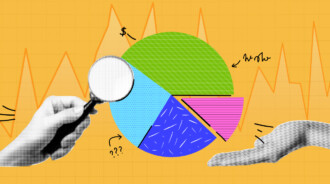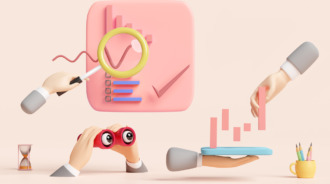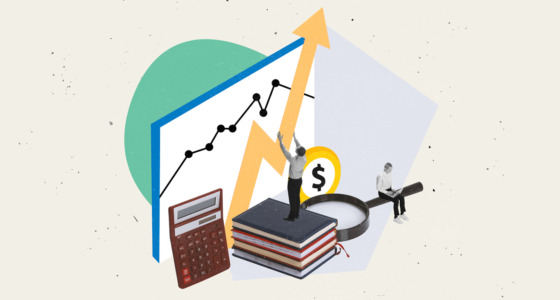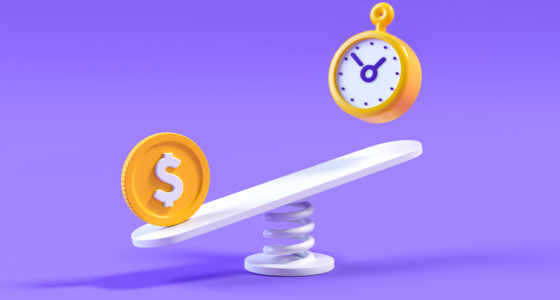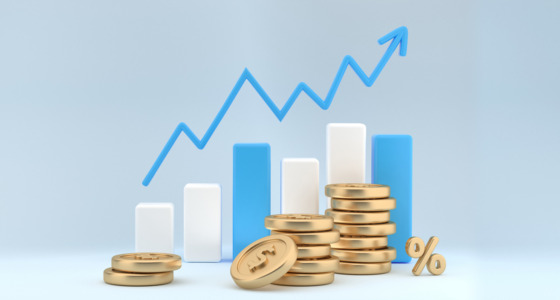

Every year, hundreds of newcomers take their chances at trading. However, not all of them succeed. Why does it happen? Most of those who fail haven’t acquired the basic knowledge needed to trade effectively. This happens because many newbies underestimate the strength of knowledge.
Let’s start small and learn how to start trading.
Learn the basics
Investors flock to world markets with their funds, but most of them make investments without knowing why prices rise or fall. Learning how to trade the markets with expertise and confidence is a preferable way to go. What assets can be traded, and how does trading work? First, let’s determine what trading is.
Trading is a way to speculate on an asset’s price change without owning the real asset. The idea of any trade is to predict an instrument’s price direction and open a position accordingly. You succeed if your forecast is correct.
Trading is available on various financial markets:
- Stock trading. This entails the purchase and sale of stock in a corporation. Companies hold an Initial Public Offering to raise additional funds. As a result, they place their stocks on a stock exchange. When trading stocks, you don’t get any control over the company and don’t purchase the shares in it. You predict the stock price that will be reached within a certain period.
The stock market is highly volatile. Thus, it’s vital to learn how to deal with increased volatility. Moreover, the stock price is affected by numerous factors. The key ones are the company’s earnings reports and global economic and political events.

- Currency trading. You may have heard of Forex. It is the global electronic marketplace where you can trade national currencies and currency derivatives. As currencies are traded in pairs, you should predict the pair’s direction. The currency market is presented by numerous pairs. Thus, there are many opportunities to trade.
- Cryptocurrency trading. Cryptocurrency is a digital currency that can be exchanged without a regulatory authority, such as a government or bank. Cryptocurrencies are traded through CFDs (contracts for difference) in pairs with the US dollar. The crypto market movements are defined by specific factors. You should be aware of the crypto network’s internal events, Bitcoin’s price direction, and global political and economic events.
- Commodities trading. This entails purchasing and selling natural resources and products, including oil, sugar, and precious metals. The commodity market is presented by various assets, from safe-haven gold to highly volatile oil. Thus, it’s vital to learn the features of each specific asset.
How to analyze the market
While learning how to trade, you must know how to analyze the market. These are two major ways to do this:
- Fundamental analysis
Fundamental analysis is a method to evaluate the strength of an asset based on political, economic, and financial factors. The factors vary for different instruments. There may be macroeconomic factors, such as political events, countries’ affairs, and industry stability. Also, there are specific factors that affect a certain asset — for instance, internal company issues when trading stocks or a network’s development when trading a cryptocurrency.
- Technical analysis
Based on historical data, technical analysis aids in forecasting future market fluctuations, such as changes in asset prices and volatility. Technical analysis is based on indicators and candlestick and chart patterns.

How to choose a broker?
A broker acts as a link between a client and financial markets, so a trader can buy and sell financial instruments.
Types of brokers
There are two types of brokers:
- Full-Service Brokers. Full-service brokers offer a wider range of financial instruments and services, such as financial guidance, specialized analysis and recommendations, and a portfolio manager who will help make trading decisions. In return, you pay high trading and account charges.
- Discount Brokers. The portfolio manager and certain account management features are removed when using a discount broker. However, you won’t have to pay much in commission fees.
Criteria
The fees, client assistance, interface, and regulations are crucial when choosing a broker. Here are a few pointers to keep in mind while selecting a broker.
- Lower commissions vs. more services. Full-service brokers provide more comprehensive assistance to new traders. You may get a portfolio manager who takes the trading decisions on your behalf. However, such services cost more.
- Client Assistance. You should be able to contact your broker’s customer service team 24/7.
- Accessibility. You should feel confident when trading. Thus, the interface of a broker platform should be user-friendly. It should be clear how to open and close a trade, where to deposit funds, and how to withdraw your rewards.
- Regulation. You should be sure the broker is legal in your country. Otherwise, you may face many problems.
- Availability of a demo account. Before you start trading, you should know there are risks. You need to choose a broker who will let you use a demo account to try out trades and methods without using real capital. It’s the most effective approach to learning how to start trading online. Remember that you can’t get real rewards when trading on a demo account.
Takeaway
Begin your trading career by learning everything about financial markets and market analysis. Be sure you understand what you do. Practice a lot and develop new trading approaches. Remember that the success of your trades depends not only on your skills but the reliability of your broker. Don’t underestimate the importance of selecting the right broker.
